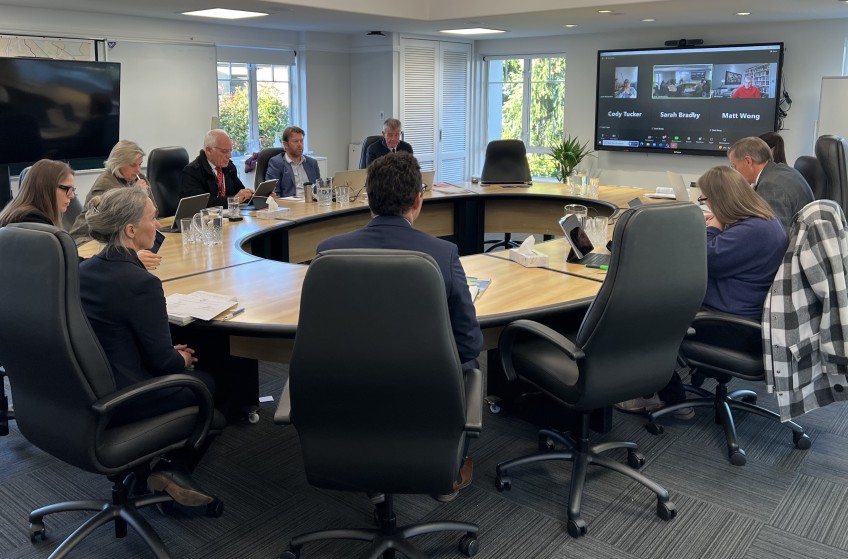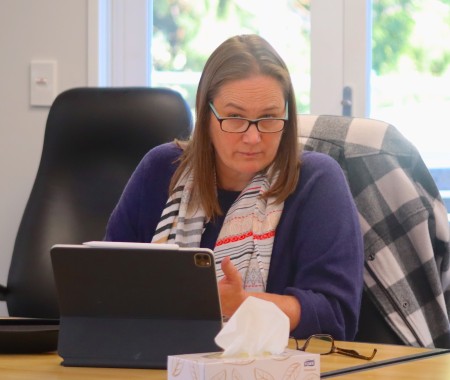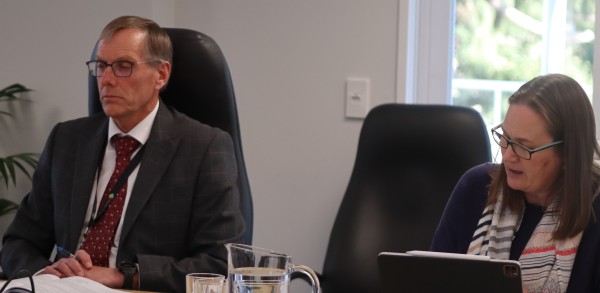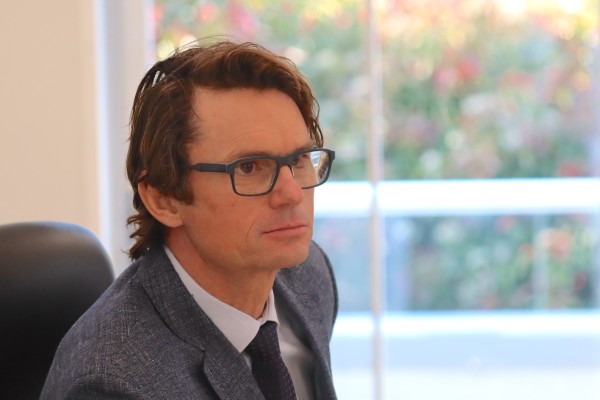Lakeview: Democracy took a dive today

Editorial/Analysis
It was a sad day for local democracy today as Councillor Niki Gladding tried without success to challenge Queenstown Lakes District Council chief executive Mike Theelen’s official stranglehold on the massively overdrawn Lakeview project.
The setting was the QLDC Audit, Finance and Risk committee meeting. This where any Lakeview risks or financial failures are supposed to be captured, debated and fixed.

Battling bureaucracy: Councillor Gladding was fighting an uphill battle today.
Councillor Gladding wanted to try and get this committee, of which she is a member, to support a review of the chief executive's so far less than successful stewardship of Lakeview. After all, the ratepayer is up for almost $100 million of costs before we have seen a cent of developer cash. Committee documents simply refer to the cost overruns as “unfortunate”.
There was none of the drama of a Rugby World Cup or even a world chess final, it was more the grinding impenetrability of a brick wall made of up of mind-bendingly complex bureaucracy.
And don't forget that the Lakeview project was the QLDC's idea. It was the council that wanted to get rid of the worker's cabins, the council that wanted to develop the Lakeview land and the council that invited bids from property developers.
In simple terms Councillor Gladding is trying to publicly review Mr Theelen’s sole delegated authority to make all decisions on the $1 billion Lakeview hotel/apartment/shopping complex above Queenstown.
Just a review – nothing more.
There are six councillors in total on the main council who share Councillor Gladding’s appetite for a review of Mr Theelen's delegation. However both the mayor and the chief executive have rallied against this move, hiring no less than two external legal firms to present reasons why the attempt to have a public vote on the delegation is technically problematic.
In a tense exchange today Mr Theelen rejected the accusation, saying that he and Mayor Lewers are not "blocking" the review attempt. Instead, Mr Theelen reminded Councillor Gladding that “the mayor has said publicly that he does not want the question of delegation to the CEO to be re-litigated”. It’s sort of the same thing – blocking.
You could have cut the atmosphere between the chief executive and the councillor with a knife.

Not mates: CEO Mike Theelen and Councillor Niki Gladding at today's meeting.
It became clear that council staff and Mr Theelen are desperately trying to get their vastly over-budget land preparation done as quickly as possible (at the ratepayers' expense) so they can pass the project on to the Australian developers.

QLDC's Lakeview manager Paul Speedy: "Full control equals full risk." But did we get control?
Mr Theelen’s Lakeview manager Paul Speedy summed up the race, and the consequences, quite eloquently: “QLDC is currently in a risk position. If you want full control you take on full risk”. He was making the point that the QLDC now needs to get out of the risk position (created by Mr Theelen’s development contract and solo management) as soon as possible. It’s also doubtful how much control the QLDC actually got for taking this risk position given that the developers seem to have got everything they’ve asked for and the council has ended up with $100 million of ratepayer cost.
Deputy committee chair Heath Copland, a former councillor, declared that he was pretty comfortable with the cost overruns – asbestos, budget creep, price increases were all pretty normal things he said, adding that the trick now was get the council land ready for the actual sale to the developers.
What Mr Copland did not mention was that the developers have got 20 years to pay for that land, under Mr Theelen’s seemingly generous deal. But even that does not happen until the council can get out of their current risk position by finishing the current infrastructure work to the satisfaction of the developers. Will that process go smoothly? Place your bets now.
So, even though Councillor Gladding failed to win over the Audit, Finance and Risk Committee, Crux did manage to present some written questions to the committee members as part of the public forum section of the meeting. And we also presented the outcome of our survey that showed 89 percent of respondents want a review of Mr Theelen’s delegation, plus the 116 comments that sum up how the community feels. We've asked the committee members to read all the comments before answering our questions - we suggest everyone does this.
Here’s the questions – we also asked about procurement and staff costs. We’ve asked for answers by 12 noon on July 16.
- Why have you as a committee member allowed the QLDC CEO to maintain sole delegated authority over the Lakeview project when the deal negotiated, and the associated outcomes, have produced very large costs to the ratepayer instead of benefits?
- Given that the Lakeview agreement involves relatively high risk – short term costs against uncertain long term benefits – how can that deal structure be defended in the light of QLDC’s responsibility to the community to avoid risk, keep costs as low as possible, be transparent and in the context of the subsequent extreme ratepayer cost blowout that appears not to be covered, managed, mitigated or limited in the Development Agreement?
- Do you support a review of the CEO’s sole delegated authority over Lakeview – please give your reasons for being in favour or against?
- How do you explain the fact that QLDC does not yet have a permanent, revised procurement policy and guidelines over two years after the Office of Auditor General required such action?
- Council overheads. Business Desk has reported this morning that QLDC has 124 staff earning more than $100,000 a year but less than 24% of staff were directly involved in delivering core services such as infrastructure, regulation and customer facing roles. This is compared to a national average of 55%. Can you please comment on the article that reports the view that: “The council (QLDC) needs to look to those other councils around the country who have managed much more affordable rates increases and aim to return to a focus solely on core council functions at a time when money is tight.”
Crux will publish the full replies from committee members next week.

























